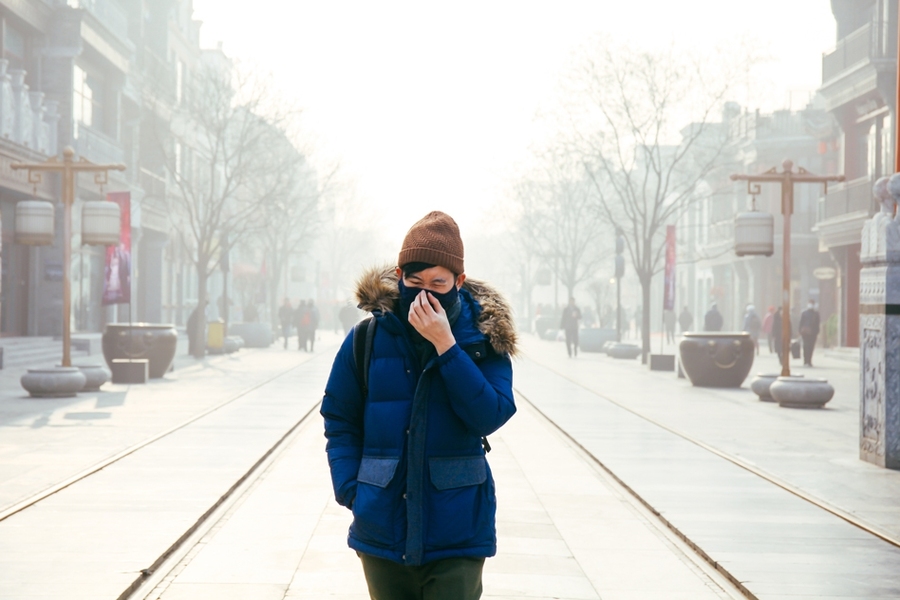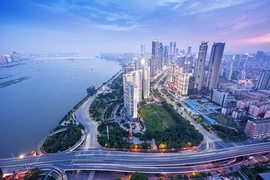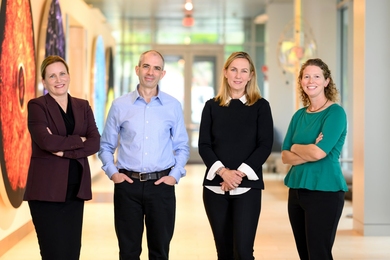For many years, China has been struggling to tackle high pollution levels that are crippling its major cities. Indeed, a recent study by researchers at Chinese Hong Kong University has found that air pollution in the country causes an average of 1.1 million premature deaths each year and costs its economy $38 billion.
Now researchers at MIT have discovered that air pollution in China’s cities may be contributing to low levels of happiness amongst the country’s urban population.
In a paper published today in the journal Nature Human Behaviour, a research team led by Siqi Zheng, the Samuel Tak Lee Associate Professor in MIT’s Department of Urban Studies and Planning and Center for Real Estate, and the Faculty Director of MIT China Future City Lab, reveals that higher levels of pollution are associated with a decrease in people’s happiness levels.
The paper also includes co-first author Jianghao Wang of the Chinese Academy of Sciences, Matthew Kahn of the University of Southern California, Cong Sun of the Shanghai University of Finance and Economics, and Xiaonan Zhang of Tsinghua University in Beijing.
Despite an annual economic growth rate of 8 percent, satisfaction levels amongst China’s urban population have not risen as much as would be expected.
Alongside inadequate public services, soaring house prices, and concerns over food safety, air pollution — caused by the country’s industrialization, coal burning, and increasing use of cars — has had a significant impact on quality of life in urban areas.
Research has previously shown that air pollution is damaging to health, cognitive performance, labor productivity, and educational outcomes. But air pollution also has a broader impact on people’s social lives and behavior, according to Zheng.
To avoid high levels of air pollution, for example, people may move to cleaner cities or green buildings, buy protective equipment such as face masks and air purifiers, and spend less time outdoors.
“Pollution also has an emotional cost,” Zheng says. “People are unhappy, and that means they may make irrational decisions.”
On polluted days, people have been shown to be more likely to engage in impulsive and risky behavior that they may later regret, possibly as a result of short-term depression and anxiety, according to Zheng.
“So we wanted to explore a broader range of effects of air pollution on people’s daily lives in highly polluted Chinese cities,” she says.
To this end, the researchers used real-time data from social media to track how changing daily pollution levels impact people’s happiness in 144 Chinese cities.
In the past, happiness levels have typically been measured using questionnaires. However, such surveys provide only a single snapshot; people’s responses tend to reflect their overall feeling of well-being, rather than their happiness on particular days.
“Social media gives a real-time measure of people’s happiness levels and also provides a huge amount of data, across a lot of different cities,” Zheng says.
The researchers used information on urban levels of ultrafine particulate matter — PM 2.5 concentration — from the daily air quality readings released by China’s Ministry of Environmental Protection. Airborne particulate matter has become the primary air pollutant in Chinese cities in recent years, and PM 2.5 particles, which measure less than 2.5 microns in diameter, are particularly dangerous to people’s lungs.
To measure daily happiness levels for each city, the team applied a machine-learning algorithm to analyze the 210 million geotagged tweets from China’s largest microblogging platform, Sina Weibo.
The tweets cover a period from March to November 2014. For each tweet, the researchers applied the machine-trained sentiment analysis algorithm to measure the sentiment of the post. They then calculated the median value for that city and day, the so-called expressed happiness index, ranging from 0 to 100, with 0 indicating a very negative mood, and 100 a very positive one.
Finally, the researchers merged this index with the daily PM2.5 concentration and weather data.
They found a significantly negative correlation between pollution and happiness levels. What’s more, women were more sensitive to higher pollution levels than men, as were those on higher incomes.
When the researchers looked at the type of cities that the tweets originated from, they found that people from the very cleanest and very dirtiest cities were the most severely affected by pollution levels.
This may be because those people who are particularly concerned about their health and air quality tend to move to clean cities, while those in very dirty cities are more aware of the damage to their health from long-term exposure to pollutants, Zheng says.
Through a creative use of social media data, the authors convincingly demonstrate a strong relationship between air quality and expressed happiness, a subjective measure of well-being, says Shanjun Li, a professor of environmental economics at Cornell University, who was not involved in the research.
“The study adds to the growing scientific knowledge on the social cost of air pollution by focusing on the cost borne by the ‘silent majority’ who do not typically show up in the studies based on morbidity and mortality outcomes,” Li says.
Zheng now hopes to continue her research into the impact of pollution on people’s behavior, and to investigate how China’s politicians will respond to the increasing public demand for cleaner air.









